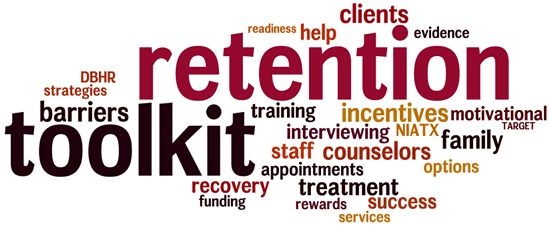Cultural Competence
 Cultural competence refers to an ability to interact effectively and respectfully with people of different cultural and socio-economic backgrounds and has been described to include four components:
Cultural competence refers to an ability to interact effectively and respectfully with people of different cultural and socio-economic backgrounds and has been described to include four components:
- Awareness of one's own cultural world-view;
- Attitude towards cultural differences;
- Knowledge of different cultural practices and world-views;
- Cross-cultural skills.
Developing cultural competence results in an ability to understand, communicate with, and effectively interact with people across cultures2.
Culture is often described as a combined body of knowledge, belief, and behavior. Culture involves a number of elements: personal identification, language, thoughts, communications, actions, customs, beliefs, values, and institutions that are often specific to ethnic, racial, religious, geographic, or social groups 5.
Why is it important?
 Cultural competency is critical to reducing health disparities and improving access to high-quality care that is respectful of and responsive to the needs of diverse patients. In particular, culturally competent practice is broadly acknowledged to be an important strategy to increase the quality of services for racial/ethnic minorities in substance abuse treatment (Guerrero, 2011). Programs with culturally responsive policies and assessment and treatment practices have been positively associated with retention in substance abuse treatment3.
Cultural competency is critical to reducing health disparities and improving access to high-quality care that is respectful of and responsive to the needs of diverse patients. In particular, culturally competent practice is broadly acknowledged to be an important strategy to increase the quality of services for racial/ethnic minorities in substance abuse treatment (Guerrero, 2011). Programs with culturally responsive policies and assessment and treatment practices have been positively associated with retention in substance abuse treatment3.
When developed and implemented as a framework, cultural competence enables systems, agencies, and individuals to function effectively to understand the needs of groups accessing health information and health care—or participating in research in an inclusive partnership where the provider and the user of the information meet on common ground5.
Resources
 National Center for Cultural Competence (NCCC)
National Center for Cultural Competence (NCCC)
The mission of Georgetown University's NCCC is to increase the capacity of health care and mental health care programs to design, implement, and evaluate culturally and linguistically competent service delivery systems to address growing diversity, persistent disparities, and to promote health and mental health equity. Provides information for organizations, providers, trainers, and families, including selected articles and books, checklists, self-assessment instruments, and more.
 CLAS Standards Training & Resources
CLAS Standards Training & Resources
E-learning modules and in-person trainings to help proiders meet the National Standards for Culturally and Linguistically Appropriate Services in Health and Health Care (The National CLAS Standards)
Culture, Language and Health Literacy
From the US Health Resources and Services Administration (HRSA).
Features resources on race/ethnicity, gender, special populations, age, and research and education.
Understanding the Basics of Race, Ethnicity, and Culture 1 NAADAC CEU)
This 1-hour self-paced course from the New England Addiction Technology Transfer Center will help you gain an understanding
of race and ethnicity, as well as the role of culture and cultural competency in addictions interventions treatment and recovery support.
Other Online Resources:
- U.S. Office of Minority Health: Cultural and Linguistic Competency
- National Library of Medicine: Multi-Cultural Resources for Health Information
- SAMHSA-HRSA Ctr for Integrated Health Solutions: Cultural Competence & Adaptation
- NAADAC Webinar: Counseling Adolescent and Minority Clients with SUD
- NAADAC Webinar: Cultural Humility: Clients in the Five Current Generations
- ATTC/NIATx Service Improvement Blog: Cultural competence and organizational change
 TIP 59: Improving Cultural Competence
TIP 59: Improving Cultural Competence
Substance Abuse and Mental Health Services Administration (SAMHSA) Treatment Improvement Protocol, November 2015. Assists care providers and administrators in understanding the role of culture in the delivery of substance use disorder and mental health services.
National American Indian and Alaskan Native ATTC
The National Center provides education and training opportunities for individuals and groups involved in providing substance abuse treatment and counseling, including health professionals in primary prevention and treatment for substance abuse, focusing specifically on American Indian and Alaska Native communities.
Interpreter Services for Behavioral Health Organizations Providers
All WA State Medicaid-funded mental health and substance use disorder services, and American Indians and Alaska Natives seeking treatment for substance use disorders are provided interpreter services.
 Native American Motivational Interviewing
Native American Motivational Interviewing
Venner, Kamilla L, and Nadine Tafoya. Center for Alcoholism, Substance Abuse and Addiction, 2006, 77 p. Manual written for counselors of any ethnic background who are working with Native American clients. This manual is intended to make MI easy to learn and use in practice with Native American clients with alcohol abuse or dependence.
Supporting Women in Co-ed Settings: Guidance Document
Substance Abuse and Mental Health Services Administration (SAMHSA) September 2016. Guides clinicians on the best practices for treating women suffering from substance use disorder in co-ed treatment and recovery settings. Highlights the importance of gender differences, cultural sensitivity, and developing healthy relationships.
 Additional SAMHSA Resources on Cultural Competency
Additional SAMHSA Resources on Cultural Competency
The Substance Abuse and Mental Health Services Administration (SAMHSA) offers dozens of manuals, guides, and handouts related to cultural competency. Find resources specific to a variety of special populations and cultural groups, all available for free: http://store.samhsa.gov/term/Cultural-Competence.
References & Readings
- Coyhis D, Simonelli R. The Native American healing experience. Substance Use & Misuse 2008;43: 1927-1949. [view abstract]
- Martin M, Vaughn, B. Cultural competence: The nuts & bolts of diversity & inclusion. Diversity Officer Magazine 2007:31-36. [free online]
- Guerrero EG. Enhancing access and retention in substance abuse treatment: The role of Medicaid payment acceptance and cultural competence. Drug & Alcohol Dependence 2013;132(3):555-561. [view abstract]
- Guerrero E, Andrews CM. Cultural competence in outpatient substance abuse treatment: Measurement and relationship to wait time and retention. Drug & Alcohol Dependence 2011;119(1/2):e13-e22. [free online]
- National Institutes of Health. Clear Communication: Cultural Competency. Web page retrieved 11/2014 at http://www.nih.gov/clearcommunication/culturalcompetency.htm.




